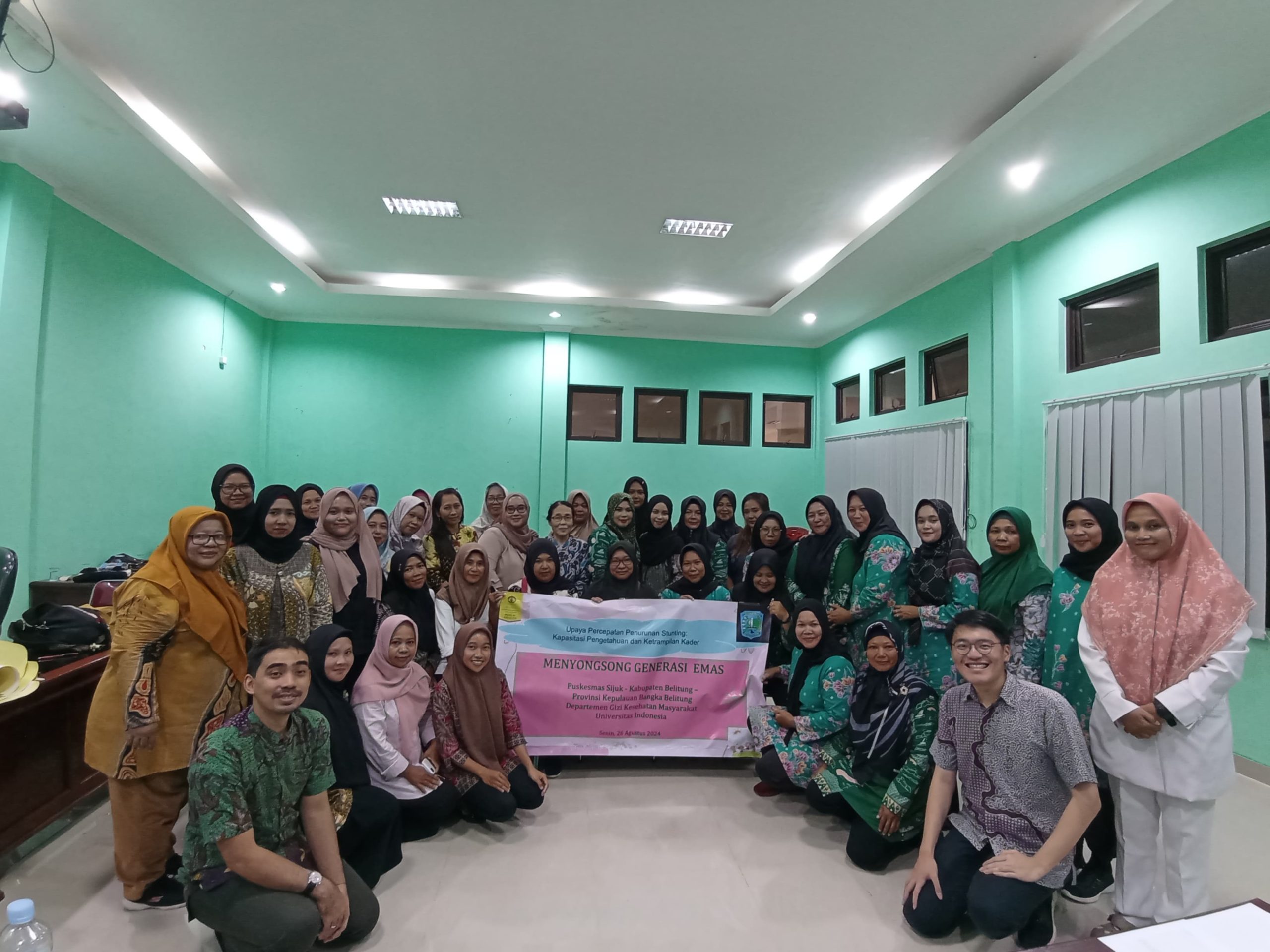Stunting is a chronic nutritional problem caused by a long-term lack of nutrition and ongoing infectious diseases, which results in disrupted child growth. Stunting is characterized by stunted height in children, making them shorter than their peers. Stunting carries long-term risks, such as low intelligence, short stature, and a higher likelihood of developing degenerative diseases (such as diabetes mellitus, hypertension, heart disease, and stroke) at an earlier age.
According to data from the Health Office of Belitung Regency, the prevalence of stunting in Belitung Regency has been increasing. Therefore, the Belitung Regency Government continues to make efforts to reduce stunting rates through acceleration programs for stunting reduction. The causes of stunting in Belitung Regency are thought to be related to parenting and dietary patterns that are still inadequate. The first 1000 days of life (1000 HPK) is a critical period to prevent stunting in infants and toddlers. On the other hand, adolescents are the future mothers who need to be prepared with good nutritional status for their future pregnancies.
The Department of Public Health Nutrition, Faculty of Public Health (FPH) at the Universitas Indonesia (UI), represented by Dr. Ir. Diah M. Utari, M.Kes., and the team, including Ir. Siti Arifah, M.P.H.; Wahyu Kurnia Yusrin Putra, M.K.M., and Denny Susanto, S.Gz., developed booklets, leaflets as educational materials, and games to enhance the skills of community health cadres.
The nutrition education session took place on August 26, 2024, for cadres from 19 posyandu (integrated health service posts) in the Sijuk subdistrict and all female adolescents from SMAN 1 Sijuk, Belitung Regency. The topics covered for the cadres included nutrition for pregnant women and toddlers, how to interpret toddler weight measurement results on the KMS (Health Card), and skills in preparing menus for pregnant women and toddlers. Meanwhile, for the female adolescents, topics included symptoms, impacts, and prevention of anemia, as well as the relationship between anemia in adolescents and stunting.
According to the cadres, all types of food ingredients are available in the market at affordable prices. Stunting cases are more often caused by inappropriate parenting, particularly in feeding pregnant women and infants. An unbalanced and non-varied diet leads to nutritional problems. During the education session, the practice of menu preparation for pregnant women and toddlers was well executed by all cadres. It is hoped that the knowledge and skills acquired will be passed on and disseminated to the community, especially to pregnant women and mothers with toddlers, so that stunting cases can be reduced.
In line with this, the female adolescents also stated that their food consumption has not fully followed the balanced nutrition guidelines as depicted in “My Plate”. The causes and consequences of anemia, as well as the relationship between anemia and stunting, were not well known by the students.
The nutrition education activity began with a pre-test and ended with a post-test related to the materials provided. The educational activity was deemed successful because there was an increase in knowledge scores among the female adolescents by 15% and 10% among the cadres, along with improvements in their skills in reading KMS and preparing balanced nutritious menus.
This nutrition education activity was well received by the Belitung Regency Health Office and the Sijuk Public Health Center. Rohami, the Nutrition Program Manager for Belitung Regency, stated that education for posyandu cadres is the right target because they are the front line in the community to help improve the knowledge of pregnant women and mothers with toddlers. SMAN 1 Sijuk also welcomed this activity, and it is expected that the increased knowledge about anemia will also enhance adherence to iron tablet consumption, ultimately reducing stunting in the future.

